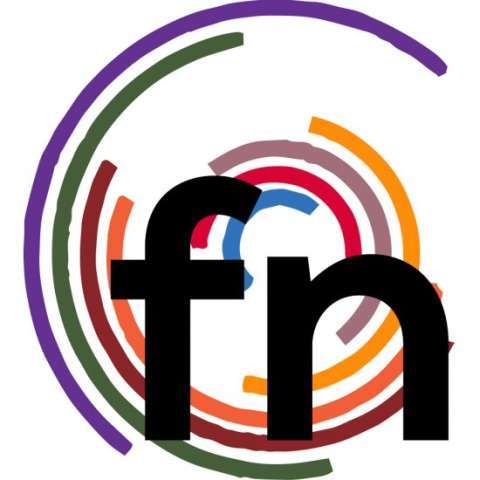Choosing the right payment gateways for your small business is crucial for seamless financial transactions and customer satisfaction. This guide explores the essential criteria to consider, including cost efficiency, security standards, and integration capabilities. It provides insights to ensure your payment gateway aligns perfectly with your business needs and enhances your operational workflow.
For mobile transactions at festivals and fairs, it's often necessary to rely on your cellular data, mobile hot spot, local wifi, or other means of connection. These are important things to consider when choosing your payment gateway.
Understanding Payment Gateways
Payment gateways are essential tools in the digital commerce space. They act as intermediaries that securely transmit critical information between websites or merchant interfaces and the banks processing the transactions. They also come in various forms:
• Integrated solutions process payments seamlessly within the merchant's website.
• Direct post methods send transaction details directly from the customer to the gateway, minimizing the merchant’s handling of sensitive data.
Each type offers distinct benefits and fits different business needs, ranging from enhanced customer experience to increased control over the transaction process. Also, the security of these gateways is of great importance. It uses robust encryption techniques to safeguard data against unauthorized access. That ensures that customer information remains confidential and secure throughout the transaction process.
How to Evaluate Your Business Needs for Selecting a Payment Gateway
This step helps you choose a solution that scales effectively with your operations and offers cost benefits that match your transaction frequency and size. Understanding customer preferences is equally crucial. It's good to know whether your customers prefer using credit cards, digital wallets, or bank transfers. No matter how insignificant it sounded, it can significantly shape your gateway choice to improve user satisfaction and conversion rates.
Lastly, consider the broader scope of your business operations. Does your enterprise require a global payment gateway capable of handling international transactions? Or would a local gateway suffice, providing better support and seamless integration with domestic banking practices? Try to balance these factors, and you will find a payment gateway that aligns perfectly with your business's operational needs and customer expectations.
Integration and Compatibility Considerations
Ease of Integration
When incorporating a payment gateway, businesses must choose one that seamlessly integrates with their current e-commerce platforms and infrastructures. That should happen without necessitating significant coding or modifications. A smooth integration process allows for a quicker setup and less disruption to ongoing operations. It makes the transition almost transparent to end users.
Mobile and Cross-Platform Compatibility
As mobile commerce's popularity rises, the compatibility of a payment gateway across various devices and operating systems becomes key. Ensure that a gateway performs optimally on desktops, tablets, and smartphones. It is vital to provide a consistent shopping experience that meets consumer expectations on their preferred devices.
Support and Updates
Selecting a payment gateway that offers comprehensive support and frequent updates is vital. This support guards against evolving security threats and ensures the gateway evolves with technological advancements. Regular updates help maintain a secure and efficient payment process. That is necessary for safeguarding user data and ensuring transaction success.
Cost Structures and Fees
You need to understand payment fee structures to optimize your online transaction costs. Typically, these gateways charge a combination of:
-
transaction fees,
-
monthly service fees,
-
initial setup fees.
It's also wise to be vigilant about hidden charges that could inflate costs unexpectedly. You should compare pricing models when choosing the right payment gateways for your business. Consider how these fees align with your sales volume and transaction patterns to select the most cost-effective option. For instance, a gateway that offers lower transaction fees but higher monthly costs might benefit larger businesses with high transaction volumes. On the other side, smaller enterprises might favor higher transaction fees but no monthly charges. The long-term financial implications of a gateway choice should be considered, particularly how the costs will evolve as the business grows. A scalable and flexible pricing model can significantly influence the financial health of an expanding business. It significantly affects its profitability and operational efficiency.
Security and Compliance
Payment gateways must adhere to stringent data security standards like PCI DSS to protect customer information from breaches. These gateways employ various innovative tools to thwart fraud, including tokenization, which replaces sensitive data with unique identification symbols, and real-time transaction monitoring that instantly detects and responds to suspicious activities. Additionally, anti-fraud screening tools scrutinize transactions to prevent unauthorized access. It is equally important for businesses to select payment gateways that comply with all legal and regulatory requirements in their operating regions to sidestep potential legal complications and financial penalties. This dual focus on security measures and regulatory adherence maintains trust and operational integrity in the digital payment landscape.
Practical Example for a Moving and Packing Business
Selecting the right payment gateway for moving and packing businesses ensures smooth financial transactions. After all, these companies handle packing breakables for shipping and transporting valuables. As such, these businesses often deal with large transactions and deposits, necessitating a gateway that provides flexible payment options to cater to diverse client needs, from individuals to corporate entities. The gateway must boast strong security features like tokenization and encryption. That is to protect sensitive data during high-value transactions, which is critical in the moving sector. Seamless integration with existing inventory and customer management systems is essential, allowing for streamlined operations that minimize errors and expedite processes.
Conclusion on Choosing the Right Payment Gateways for Your Business
Selecting the right payment gateways for your business is pivotal for ensuring transactional efficiency and security. By understanding your business needs, assessing compatibility, and evaluating cost structures, you can make an informed decision that supports growth and customer trust. Remember, the right gateway facilitates smooth transactions and strengthens your business's market position.



